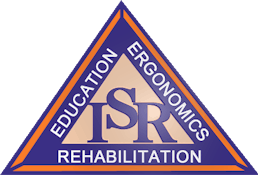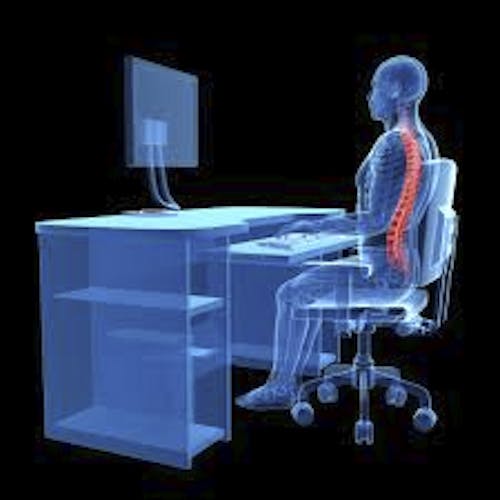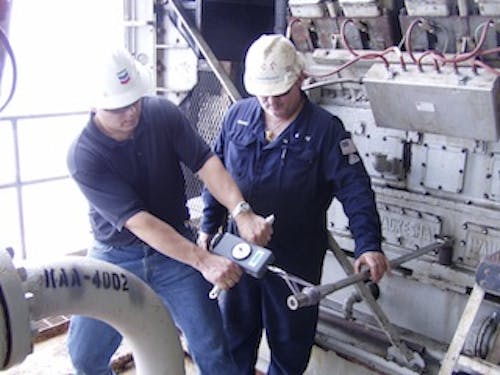Ergonomics
The science of ergonomics involves an understanding of basic body mechanics and how to modify equipment, tools and the work environment to make it easier for the human body to function safely and efficiently.
ISR Ergonomics Analyses Offered by Credentialed Clinical-Based Ergonomic Specialists
All ergonomic specialists employed by at ISR Institute are CBES credentialed licensed physical or occupational therapists. Thus, when ISR Institute is contracted to conduct ergonomic assessments, the employer acquires the expertise of not only an ergonomic specialist, but also a practicing clinician. All CBES credentialed clinicians actively treat the very same disorders that ergonomics and behavioral intervention is directed at preventing. Therefore, CBES credentialed ergonomic specialists at ISR Institute are highly experienced and very effective in helping employees not only understand and comply with ergonomics, but also understand the effects of poor work and lifestyle behaviors on health. Ergonomic analyses of the work site are performed to determine modifications that will diminish physical, mental and environmental stress on the worker.
Office Ergonomics - Visual Display Terminal and Work Station Design
A poorly designed office will contribute to cumulative trauma affecting the neck, shoulders, elbows, wrist, and back. ISR Institute has extensive experience at modifying office workstations to significantly reduce stress placed on the office worker's musculoskeletal system. Specific ergonomic methods used by ISR Institute, have helped large and small corporations virtually eliminate carpal tunnel syndrome, bursitis, tendonitis, and neck and back disorders. Simple, but highly effective, postural relief exercises directed at relieving stress on the body caused by lack of movement and sustained awkward body positions are also demonstrated during each ergonomic assessment.
Field Ergonomics
Field ergonomic analyses involve quantitative measurements and analysis of material handling techniques based on NIOSH guidelines. Analysis is directed toward the determination of how to reduce postural stress, excessive repetition of body motions, excessive force during material handling and tool usage, cardiopulmonary stress, environmental stress, and excessive mental demands placed on the worker. Time-motion analysis techniques are used to reduce or eliminate repetitive stress and injuries. ISR Institute uses the results of this analysis to provide no cost and low cost methods that when implemented can reduce worker absenteeism, prevent injuries and improve productivity.
Physical Demand Validation of Jobs & ADA Compliant Job Descriptions
ISR Institute can conduct physical demand validation analyses of jobs and develop functional job descriptions while performing during ergonomic assessments. Physical demand validation analyses (PDVA) of jobs are essential for developing functional job descriptions that are compliant with ADA requirements. Measurements by CBES credentialed ergonomic specialists are directed at validating physical forces and cardiovascular demands used in material handling and other specific work tasks.
Analysis of special job requirements, work environment and mentation demands complete the process. The data of the PDVA is then used to form ADA compliant functional job descriptions to be used by Human Resource personnel for hiring purposes. This document forms the legal basis upon which any post-hire testing criteria are determined. PDVAs are also utilized to measure the impact of ergonomic modifications on reducing worker stress.


